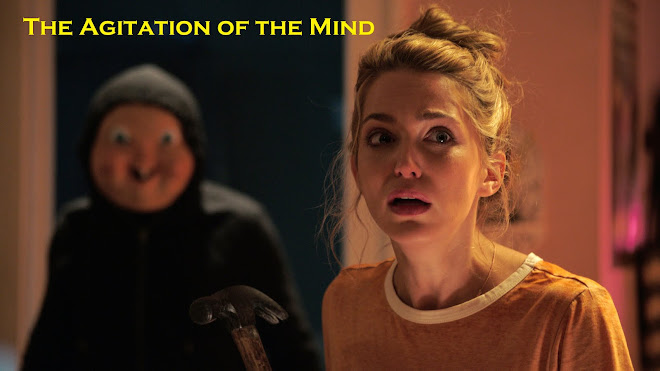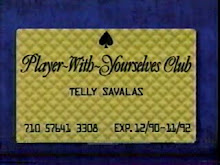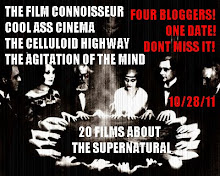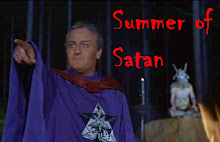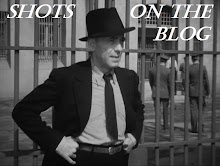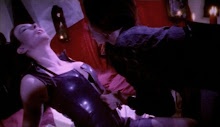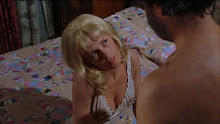‘Sweetgrass’ drifts so far from the expected narrative
or expositional tenets of the documentary format that it’s possible to forget
you are actually watching a documentary and feel that, instead, you’re immersed
in some kind of Tarkovskian art movie or film-poem.
‘Sweetgrass’ exists without narration or “talking
heads” interview footage. For the first half hour at least, before a group of
unnamed ranchers drive a sizeable herd of sheep through Montana’s Beartooth
Mountains in search of pasture, barely a word is spoken. For the first half
hour, the focus is entirely on the sheep. The ranchers float around on the
periphery, but say barely anything. The camera insinuates itself amongst the
herd and it seems for a while as if film-makers Lucien Castaing-Taylor and
Ilisa Barbash are going to remain with the sheep’s POV for the duration – a prospect
nowhere near as unappealing as it may sound.
Incidentally: the use of “filmmakers” in that last
sentence. ‘Sweetgrass’ bears no director’s credit. It was produced by Barbash
and “recorded” by Castaing-Taylor. The credits are as spare as anything else in
the film, and it’s immediately apparent that’s exactly what Castaing-Taylor
did: let he his camera record what was happening.
Ah, but there’s the rub. ‘Sweetgrass’ was shot between
2001 and 2003 (it wasn’t released till 2009) and two years’ worth of footage,
even if collected intermittently, still leaves the editor with subjective
choices in terms of sculpting a 105-minute feature which, notwithstanding its
jettisoning of conventional narrative techniques, still needs a rhythm, a flow
and an overarching structure. To put it another way: language is the least of Castaing-Taylor
and Barbash’s concerns, but grammar still applies – the grammar of cinema. And
every cut, as Truffaut pointed out … well, you know the rest. There’s also an
eminently sneaky non-naturalistic moment involving the overdubbing of an
extreme long shot with soundtrack that seems like it might have been “lifted”
from elsewhere during the two-years Castaing-Taylor recorded the work of the
ranchers.
It’s a measure of how successful ‘Sweetgrass’ is,
however, that these considerations didn’t come to mind until way after those
stripped-down end credits had taken up their minute and a half of screen time
(if that) and this exhausted viewer was giving thanks that he doesn’t have to
herd sheep for a living. Granted, there seemed to be a total dearth of the kind
of office politics, lying, backstabbing, and rampant careerist arrogance that
makes my place of work such a Machiavellian shithole, but at least I don’t have
to deal with grizzly bears, dead sheep, vertiginous mountainsides, adverse
weather conditions, 18-hour days, amenities that redefine basic, and loneliness
that must seem all the more crushing for the grandeur of the mountains and the
endless emptiness of the landscape.
Maybe it’s the loneliness that informs the scene I
mentioned earlier; maybe all of the above. Over a shot that reveals itself as
ever more magisterial the further the camera pulls back, the sheep diminished
to almost unidentifiable white dots making a slow progress, en masse, up a
steep gradient in the kind of landscape that inspires epithets like “wilderness
country”, the ranch boss lets forth with an expletive-peppered rant against the
sheep, his dogs and probably every single thing under the sun, using the word “fuck”
so many times in just a couple of minutes that a mash-up of ‘Casino’, ‘The
Boondock Saints’ and ‘In Bruges’ would have a hard time staying the course.
It’s a curious moment – it rams home the thanklessness
of the work and the wearying reality of the conditions, but it also feels out
of place in a film where there has been no music, no narration, and the sound
design up to this point has been rigorously diegetic. But, as entered into
evidence earlier in this review, this didn’t occur to me until afterwards. So
maybe the proof is in whether an aesthetic decision intrudes enough to throw you
out of the film while you’re watching
it. Besides, the doctrine of Herzog’s “ecstatic truth” – an intellectually and
aesthetically valid option for the serious documentarist – can be said to
apply.
‘Sweetgrass’, ultimately, is an elegy for a way of
life. The film is offered in memoriam
the very ranch it depicts: it ceased to be a going concern in 2004, just over a
century after it was established. It depicts a way of life that was probably
outdated several decades ago. There’s a scene of the ranch boss – a man of few
words (when he’s not cussing, that is) and a chronic mumbler almost to the point
of incoherence – is having a faltering conversation over a walky-talky. Between
his linguistic deficiencies and a continual wash of static, it adds up to an awkward
juxtaposition of the traditional and the contemporary. Remember Kirk Douglas
riding across the scrubland in full cowboy gear in ‘Lonely are the Brave’, only
to pull up his horse at the edge of a multi-lane freeway, huge Mack trucks
thundering past? ‘Sweetgrass’ gives you that feeling for an hour and three
quarters.
